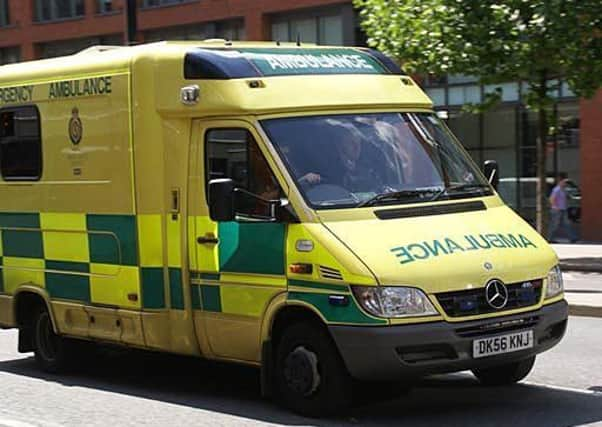Would you dial 999 for a cold or a sore finger?


Further misguided pretexts for dialling paramedics on 999 have included a burst abscess on the patient’s bottom, concerns for health after eating undercooked bacon, a persistent cough and a person who had lost weight and “didn’t look good.”
Laughable if it wasn’t wasting the emergency services’ time.
Advertisement
Hide AdAdvertisement
Hide AdThankfully the operator pointed these and others with equally non-critical calls for help to more suitable forms of care.
The examples, all from Wigan and Leigh, have been released by the North West Ambulance Service NHS Trust to show the type of medical incidents where the callers would have been better off seeing their GP or even their pharmacy.
Some of the calls received from the Wigan and Leigh over the last few months, area included:
Has a cold;
Constant cough;
Bent finger;
Thinks he broke ankle three nights ago;
Glass stuck in toe;
Insect has flown into ear;
Piles;
Losing weight and doesn’t look good;
Abscess on bottom has popped;
Spot on bottom;
Eaten undercooked bacon;
Nose hurts;
Earache;
Had a bug for two days;
Cut to finger;
Feels sick.
While ambulances were not sent to any of the calls highlighted in story, they still needed to be answered which meant a member of staff in one of the trust’s three call centres had to ask the relevant questions and were unable to answer genuine emergency calls for help.
Advertisement
Hide AdAdvertisement
Hide AdHead of service for Greater Manchester Steve Hynes said: “We understand that some people genuinely do not know who else to call but 999 shouldn’t be the default number. It is for emergencies, injuries and conditions that need our urgent help and while we are explaining this to people who have called in, there is someone waiting for their call to be answered.
“999 isn’t the number to call if you can’t get a GP appointment or you haven’t got anyone to drive you to a hospital. The likelihood is, as was the case with these calls, we will give you self care advice or refer you to local services and this is precisely the service that 111 can provide. We would ask that if your case isn’t a medical emergency, that you try 111 first so your call doesn’t prevent a life-threatening one getting through.”
On average, NWAS answers 4,000 emergency calls every day and with the ever increasing rise in the most life-threatening calls, it is vital that the iconic 999 number is only used in genuine emergencies.
To prevent unnecessary trips to hospital, the trust has strengthened its Hear and Treat and See and Treat care pathways, which in 2016 resulted in a 42 per cent deflection rate regionally and the number of patients managed safely and closer to home has increased.
Advertisement
Hide AdAdvertisement
Hide AdHear and Treat is when a patient is referred to the urgent care desk within the emergency operations control for further, more in-depth triage by a senior paramedic and this is how these calls were managed.
See and Treat is when on scene (predominantly in the home) treatment is given to the patient, or alternative community care is sought to better match the patient’s condition.
Only the most serious 999 calls will receive a fast ambulance response and therefore, those with minor injuries are likely to find it quicker and more convenient to make their own way to hospital or to use alternatives such as pharmacies, GPs, walk-in centres or self-care.
Instead it is always best to plan ahead for any health needs by having a well-stocked medicine cabinet.
Advertisement
Hide AdAdvertisement
Hide AdMedical advice or treatment, can be provided by urgent care centres, pharmacist, or by calling NHS 111, which will often be faster.
NWAS receives more than one million emergency calls each year from across the North West. Its NWAS #MakeTheRightCall campaign aims to help people understand what their options are and where to find care for less-urgent illnesses and injuries.
The NHS 111 service currently operates providing non-emergency medical help fast.